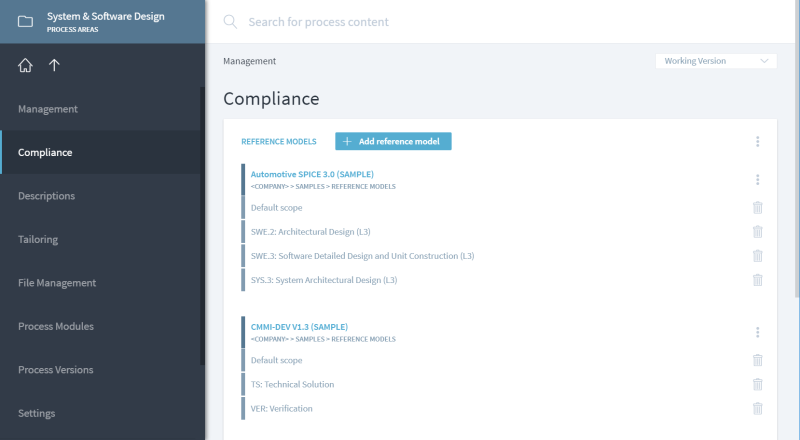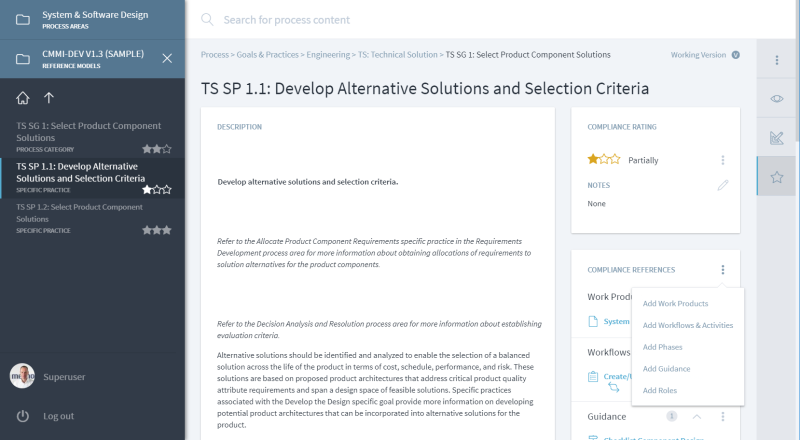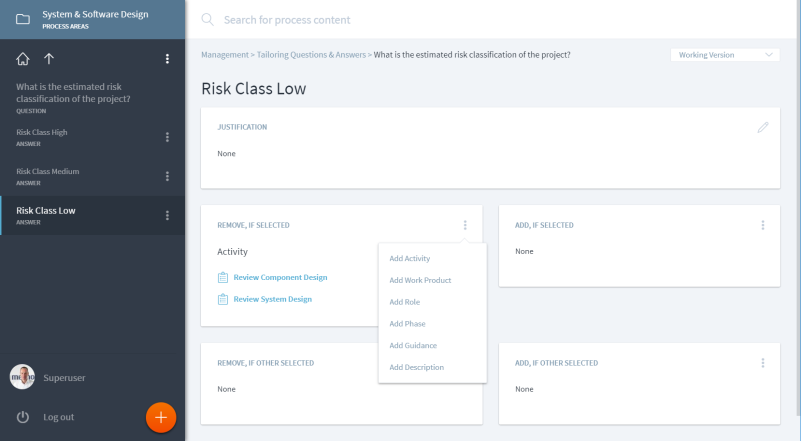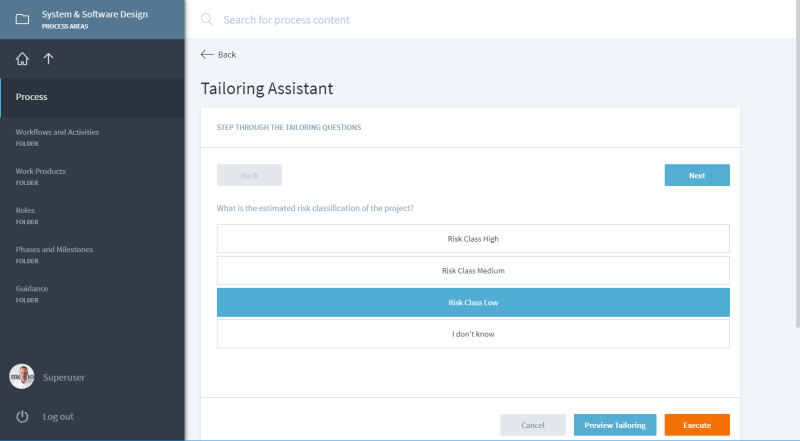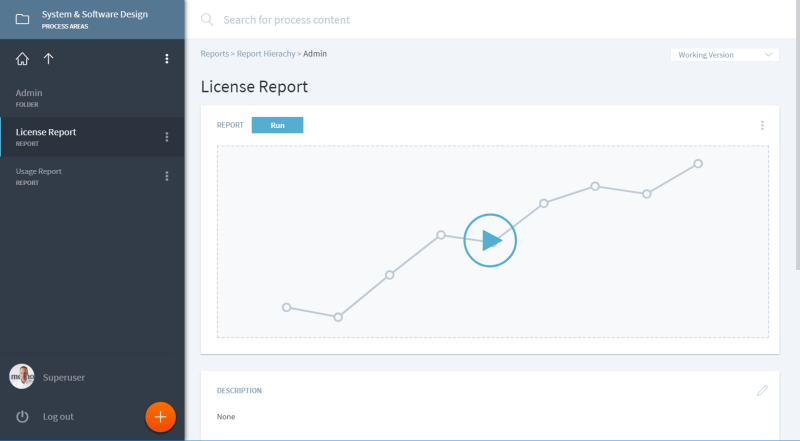Release Notes: Stages Version 7.2
With version 7.2, Stages covers the full lifecycle of a process, from definition over publication to usage in practice. The following capabilities from Stages Version 6 have now been migrated to the new user experience and were significantly improved.
Compliance Management
Assuring compliance to standards like Automotive SPICE, ISO 26262, DO-178C, DO-254, AS9100D, IEC 62304, FDA, EN 50128, or CMMI, is crucial for engineering processes. Mapping a process to a reference model is now started via the Management > Compliance menu. The user can define one or more reference model scopes that the current process needs to be compliant with.
The difference between public and private scopes has been removed. Scopes are now always defined on the reference element side.
The percentage-based rating from V6 has been replaced with a much simpler three-star rating scheme. Ratings are now given per standard requirement, not for every single mapping. For example, mapping an activity, a work product, and a template to one standard requirement receives only one rating, not multiple percentage values.
Element that should be mapped to a compliance requirement can be associated via the normal association dialog (search or browse). With templates and checklists now being guidance instead of resources, mapping those elements to standard requirements is now also possible.
The previously hard-coded gap analysis and evidence collection are now provided as reports that can be optimized and enhanced by the customer via the Stages reporting capability.
Tailoring
Process tailoring is an important capability to provide specific processes for programs and projects.
The definition of tailoring questions and answers has been improved and streamlined. It can be accessed via the Management > Tailoring menu. Process elements can be associated to each tailoring answer via the normal association dialog (search or browse).
Tailoring questions and answers can now also be found via the Stages search.
The tailoring assistant can be started via the top right menu on the process start page or via the Management > Tailoring menu. The user interface has been modernized and now also shows the previously answered tailoring questions.
The previously hard-coded tailoring report has been replaced by a report that can be optimized and enhanced by the customer via the Stags reporting capability.
New APIs have been created to access the tailoring information in reports and other scripts. See here for more info.
Reports
Reports are now centrally managed, so creating and updating reports is now significantly faster. Instead of previously being associated with metric elements, all reports can be directly accessed via the Reports menu. Folders can be used to manage a large number of reports or group them in a logical structure (e.g. “Compliance”, “Tailoring”, “Admin”).
Reports now only run when the Run button is being pressed and can be updated directly via drag & drop or browse.
If a report results in an error, a warning sign is shown. Error details are revealed by clicking on the warning sign.
The reporting API is still compatible to previous Stages versions, but reports might need to be adjusted for the new Stages capabilities. See here for more info how to migrate existing reports to V7.
Single-Sign-On via SAML
Stages now supports single-sign-on user authentication via SAML. For that purpose, Stages acts as a SAML Service Provider and authenticates users via a SAML Identity Provider. If an organization uses keycards or user certificates, user can log into Stages without having to type their username and password. New users can be automatically created and set up with default permissions upon their first login, so administrative overhead is eliminated.
Miscellaneous
Workspace variables can now be defined via the Administration > Workspaces menu in the Variables tab of each workspace. Like in previous Stages versions, variables can be used as %VARIABLE_NAME% in element descriptions, file names, and file paths.
Direct links to elements in previous Stages versions (e.g. “…/pkit/go/pelement.do?id=…”) are automatically redirected to the new link format. The new format is independent of the database ID of an element, so the links should be more stable.
Known Issues
This initial release only contains the integration with Subversion (SVN) as a configuration management system. Additional systems like Sharepoint, CVS, PTC Integrity, or Dimensions will be released as add-on modules soon.
Sorting process elements on touch devices (i.e. iPad) does not work.
